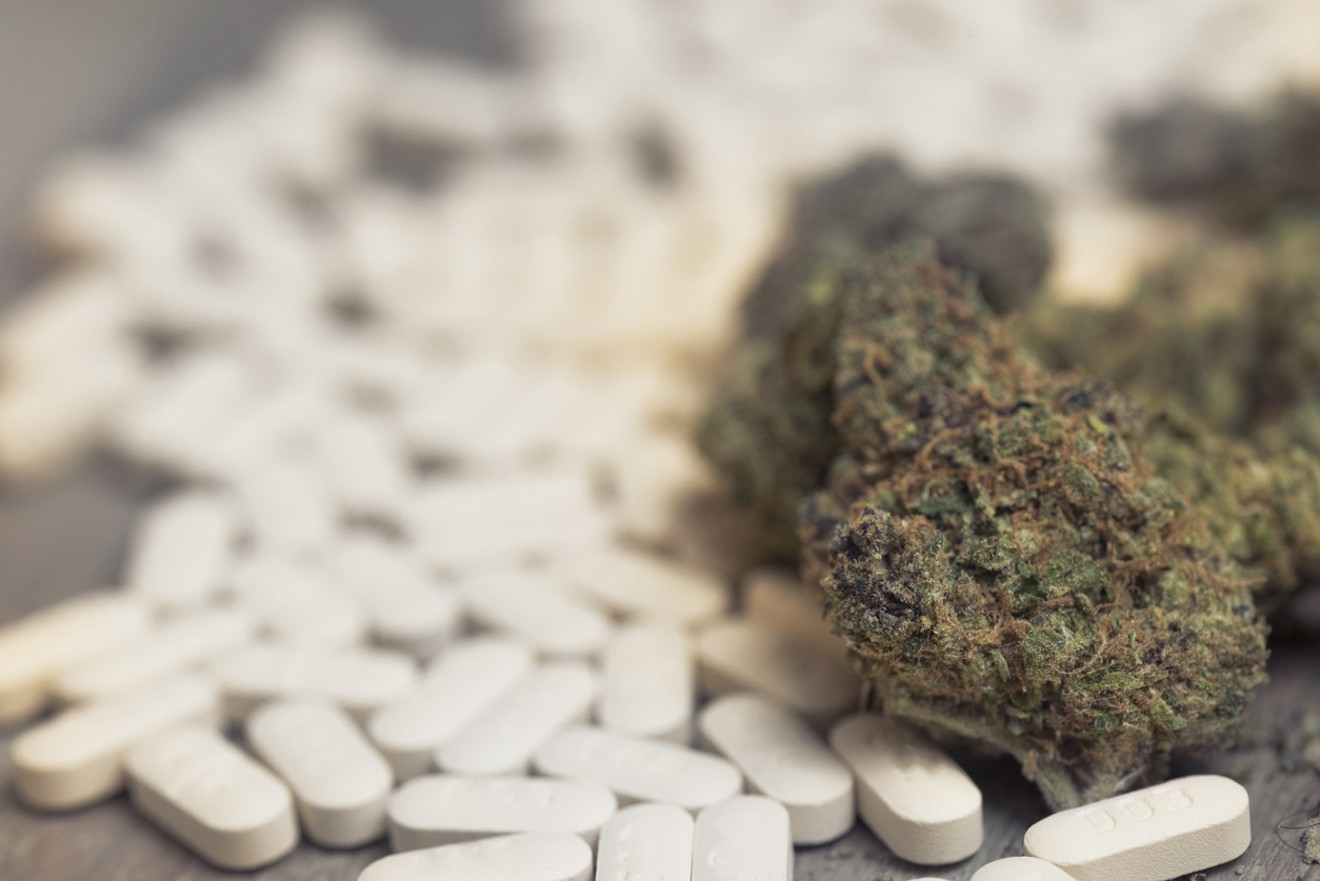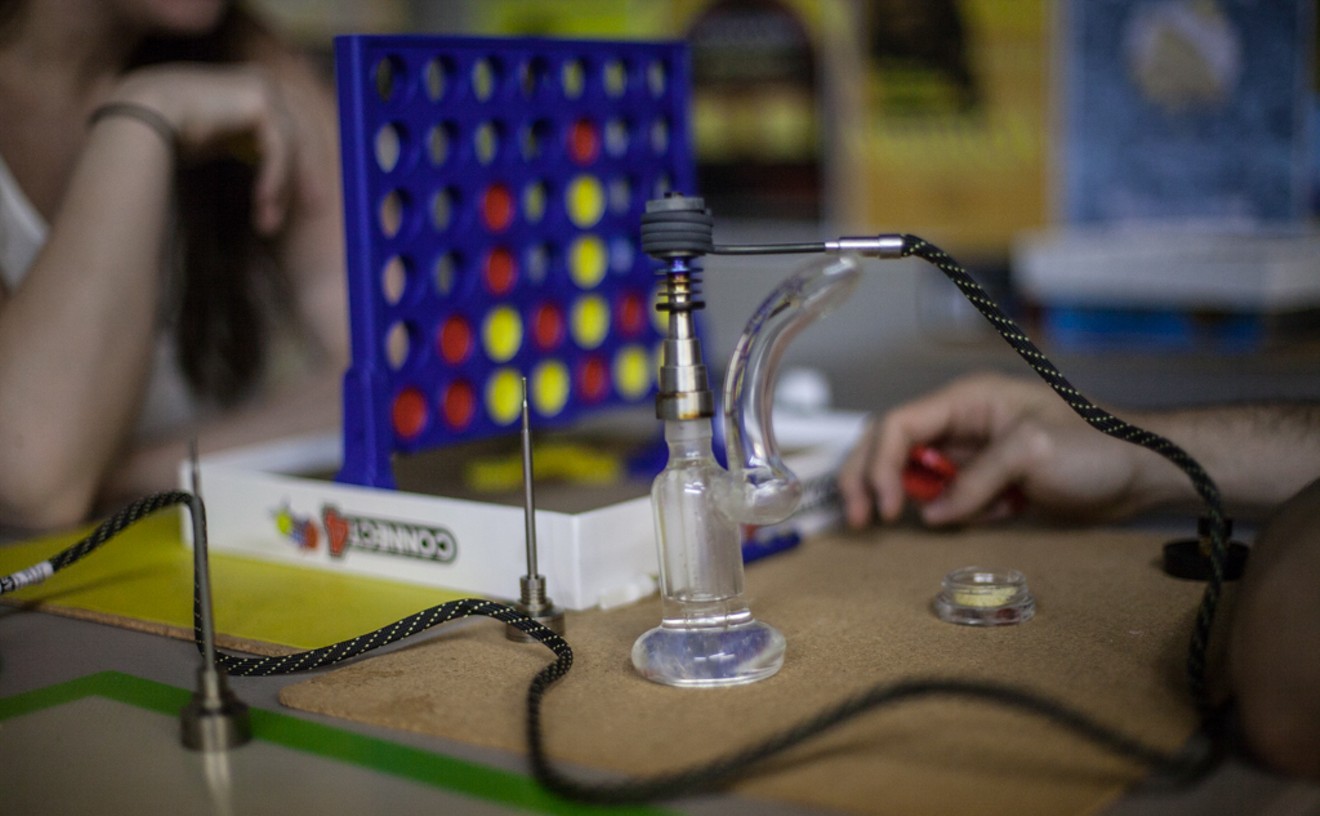Advocates often say that legal marijuana has the potential to combat America's opioid crisis, but anti-pot groups are claiming just the opposite. In a recent letter sent to legislators in states with forms of legal marijuana, drug-prevention organization Drug Free America claims that pot use is associated with an increased risk of abusing prescription opioids and warns against using medical marijuana to treat opioid-use disorder.
Despite numerous media reports on marijuana's role in declining opioid deaths in states with legal pot laws, DFA says people are losing sight of the big picture. "The marijuana lobby is pushing states to expand medical marijuana access to include opioid use disorders. The evidence that increased access to marijuana has reduced opioid overdose deaths however is weak and shortsighted," the letter reads.
Sent to elected representatives in states "where the marijuana lobby is pushing a false and dangerous narrative," the letter cites a study from the National Institute on Drug Abuse, which found respondents reporting pot use within the past year had 2.2 times higher odds than non-users for having a prescription opioid-use disorder and 2.6 times greater odds of abusing them.
"The current opioid epidemic in the U.S. has been universally recognized as one of the most important public health issues to date," the letter reads. "Opioids have dominated drug policy and funding discussions at both the state and federal level, and now Big Marijuana is moving in to profit from this health care crisis."
DFA isn't the only anti-pot group that believes legal marijuana will increase the opioid problem. A recent report from Smarter Approaches to Marijuana and the Marijuana Accountability Coalition also claims a link between legal marijuana and opioid use, and both blame "big marijuana" as the culprit. But there are several studies that counter that stance, notes Aclara Research founder Carmen Brace.
"There are some holes within the assessment," she says. "Overall, the positive impact of using cannabis for chronic pain is becoming more and more established in the cannabis community." According to Aclara's recent study with over 400 Illinois medical marijuana patients, 87 percent of respondents used opioids before using marijuana, with 67 percent of those patients stopping their opioid use afterwards.
A study published in the American Journal of Public Health in 2017 that analyzed opioid overdoses in Colorado from 2000 to 2015 found a reduction of 0.7 deaths from opioid overdoses per month following retail marijuana legalization in 2014, when the decades-long upward trend actually started going down.
Brace takes issue with the DFA letter's claim that "nationwide efforts" and "legislative measures" are significantly combating the crisis, particularly since it cites no such measures. According to the letter, increased access to overdose reversal medication Naloxone, Medicated Assisted Treatment programs that disperse methadone and buprenorphine, and increased legal protection for those who assist a person who is experiencing an overdose are all working to decrease opioid addiction, as are prescription drug-monitoring programs, further regulating pain clinics and prosecuting unethical prescribers.
"It indicates there have been a variety of policy changes in overdose prevention, but they're not accounted for in the letter," Brace says, noting that despite all of the lawmaking efforts listed by the DFA, opioid-related deaths continue to rise nationwide. "The National Institutes of Health data on opioid deaths completely debunks that myth. When we look at opioid deaths across the U.S. from 2002 to 2015, it has risen every year."
The Colorado Department of Public Health and Environment denied a request in 2010 to add "opioid dependence" to its list of qualified medical marijuana conditions. The request was denied before it could appear in front of the Colorado Board of Health, according to the CPHE, and no other request to add an opioid-related affliction to the list of medical marijuana conditions has come across the board since.
[
{
"name": "Air - MediumRectangle - Inline Content - Mobile Display Size",
"component": "12017618",
"insertPoint": "2",
"requiredCountToDisplay": "2"
},{
"name": "Editor Picks",
"component": "17242653",
"insertPoint": "4",
"requiredCountToDisplay": "1"
},{
"name": "Inline Links",
"component": "18838239",
"insertPoint": "8th",
"startingPoint": 8,
"requiredCountToDisplay": "7",
"maxInsertions": 25
},{
"name": "Air - MediumRectangle - Combo - Inline Content",
"component": "17261320",
"insertPoint": "8th",
"startingPoint": 8,
"requiredCountToDisplay": "7",
"maxInsertions": 25
},{
"name": "Inline Links",
"component": "18838239",
"insertPoint": "8th",
"startingPoint": 12,
"requiredCountToDisplay": "11",
"maxInsertions": 25
},{
"name": "Air - Leaderboard Tower - Combo - Inline Content",
"component": "17261321",
"insertPoint": "8th",
"startingPoint": 12,
"requiredCountToDisplay": "11",
"maxInsertions": 25
}
]












